Health
Children to be turned away from Withybush A&E in department downgrade
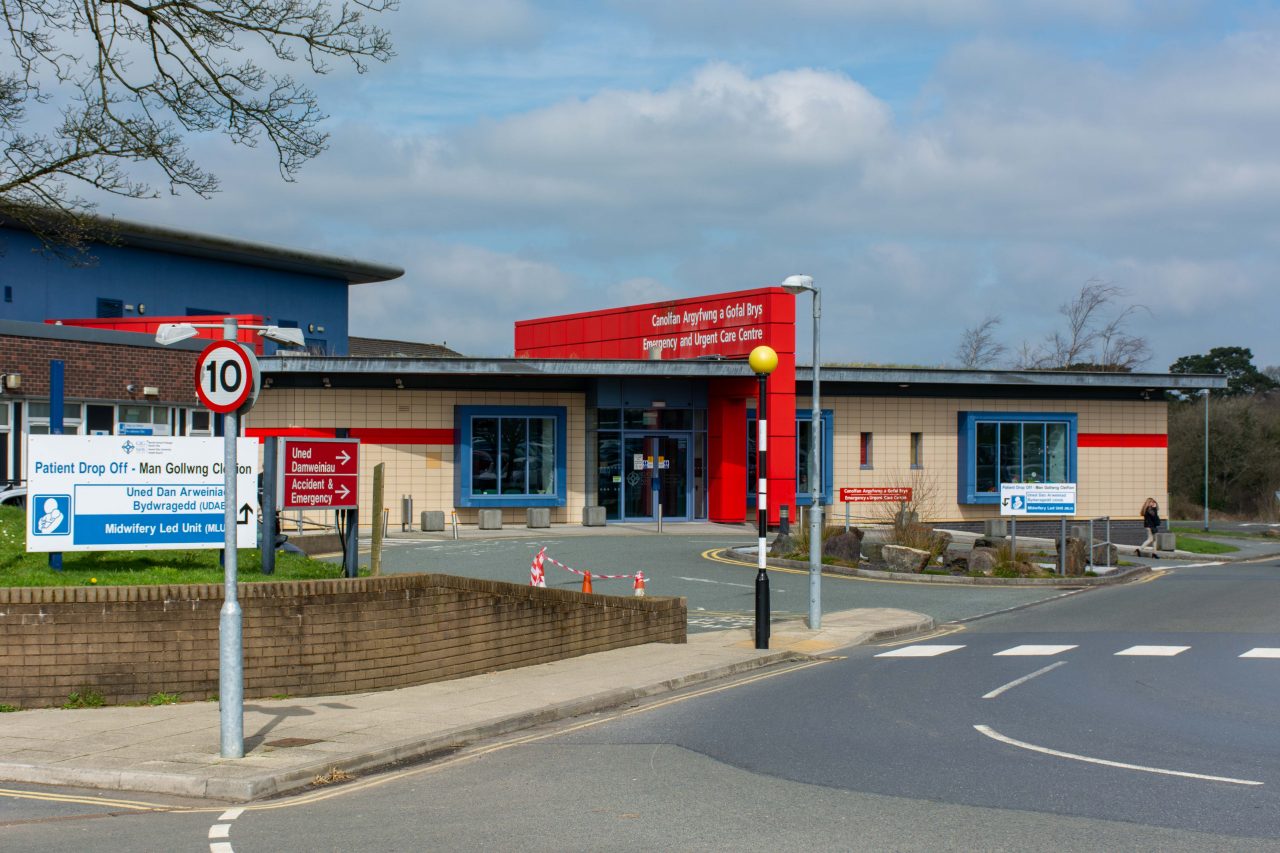
WITHYBUSH GENERAL HOSPITAL’S accident and emergency department will be downgraded to an ‘adults only service’ until at least the spring of 2022, according to Simon Hart. There has been no word yet from the Health Board but the local MP has posted the controversial plan to his Facebook page.
Children requiring emergency treatment will have to be ambulanced to further-away hospitals, putting pressure on the local ambulance service, who are already reducing the number of vehicles available in the county from seven to five.
Withybush is experiencing a severe shortage of staff, and is also grappling with the third wave of COVID-19 infections, which is expected to be announced as one of the reasons for the downgrade.
But some hospital insiders are saying things are worse in Carmarthen.
In addition, hospital sources have told the Herald that three unvaccinated COVID-19 patients died in Withybush last week.
The plan has come to a shock to many, but Steve Moore, the Health Board’s Chief Executive, has this week reported that there are 66 people in our hospitals with confirmed Covid, 10 of these are in Intensive Care
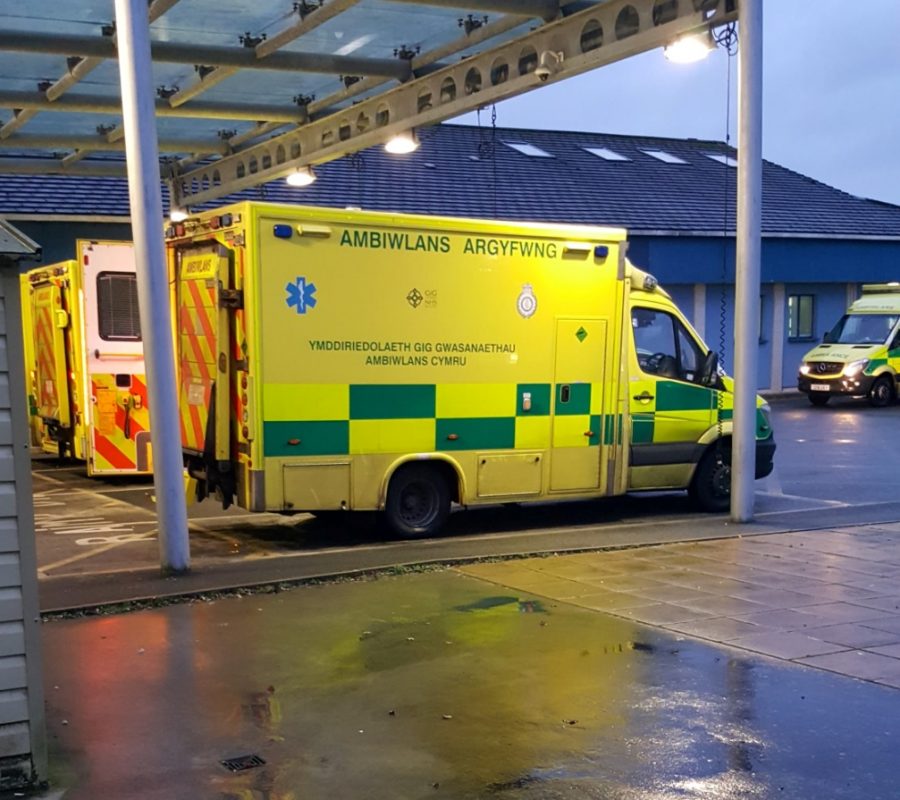
He stated that about half of those in ICU have been vaccinated and added that the clinical view is that patients respond more quickly and favourably if they are vaccinated. All Covid deaths in the past few weeks have been of unvaccinated people.
Infection rates are coming down slightly but are still very high, with 506 cases per 100,000 people in Carmarthenshire (the 2nd highest level in Wales) and 293 cases per 100,000 in Pembrokeshire. There is a test positivity rate of 16% across the HB area. It is thought that cases peaked on 6th September, though the full impact of schools going back may not yet have been seen.
Reacting to the news of the downgrade to A&E, Tracy Olin, who runs the PATCH charity said on social media: “People without cars and/or money already struggle to get to Withybush. How are they supposed to be able to afford to get to Carmarthen? This will be an added pressure on our ambulance service. Sadly I fear, even with excellent arguments against the plans for Withybush the decision will not change.”
Local resident Bev Jenkins also added her concerns, saying: “Paediatrics is needed full time at Withybush, also now with only five ambulances going to be in Pembrokeshire, its shameful. Withybush needs all its services back! Sack half the pen-pushers at the health board, reduce the managers at the hospital, employ more doctors and consultants.”
Heather Scammell commented on Facebook, saying: “Were I to comment what I really think about Hywel Dda’s shameful disregard for the needs of Pembrokeshire residents, I would be permanently banned from Facebook. To leave our County without paediatric care for so long is indefensible and no further downgrade of A&E is acceptable.
More than 1,200 people – many of who credit Withybush Hospital with saving their life or that of a loved one – came out to protest planned cuts to services in November 2018.
Families, staff and current and former patients braved the bad weather to send a message to Hywel Dda health board: Pembrokeshire must keep its A&E department.
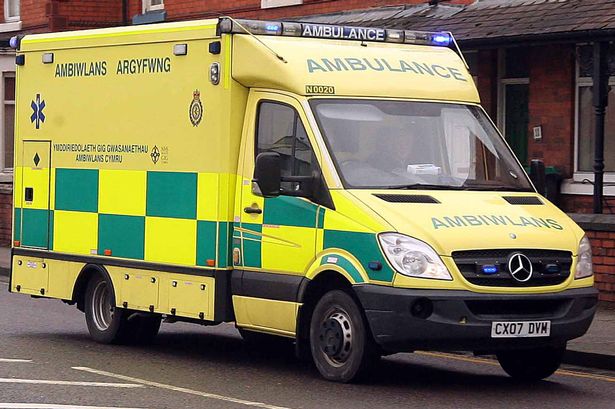
Demonstrators shared moving personal accounts of how the hospital has helped them, and aired concerns over the potential impact if it is downgraded, and services moved to a new site between Whitland and St Clears.
Addressing the crowd at the time, Preseli-Pembrokeshire MP Stephen Crabb: “When 40,000 people sign a petition to the health board, they mean it.
“Most of us are here because Withybush is part of our lives, it’s part of our community. The campaign is not over. We will keep fighting to defend our A&E.”
The question now is, how does closing the A&E to children affect their safety, and does it put our children’s lives at risk?
The health board has been contacted for a comment.
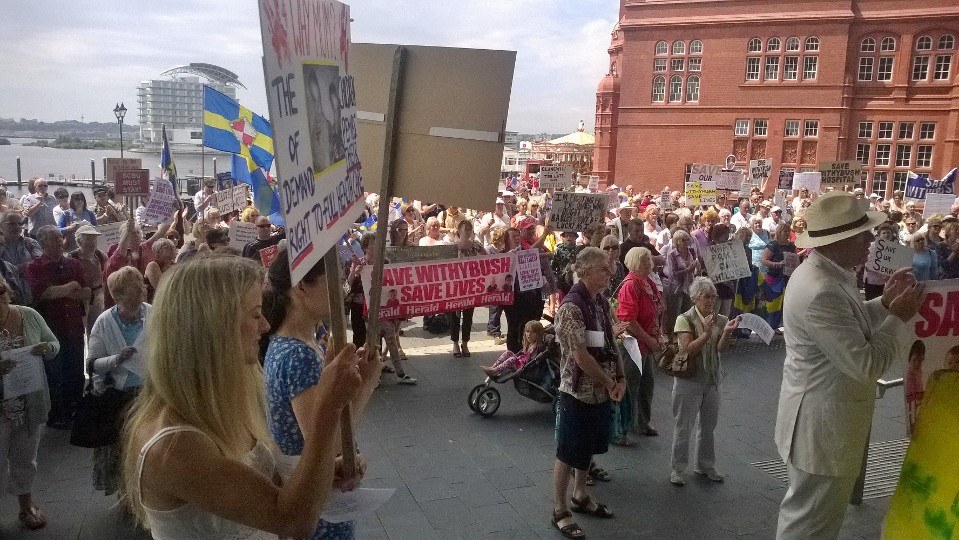
Health
Dental services ‘facing collapse’ in Wales

DENTAL services are at risk of catastrophic collapse, with people resorting to “DIY dentistry” and pulling their own teeth with pliers, the Senedd heard.
Peter Fox warned that NHS dental services are seeing rapid decline following the Welsh Government’s introduction of a new contract in 2022.
He told the Senedd: “These contracts don’t work for dentists, nor do they work for patients,” as he highlighted a 60% fall in the number of NHS dental posts compared with 2021.
Echoing concerns raised by the British Dental Association, the Conservative MS said dental services face potential catastrophic collapse due to the contract reforms.
Mr Fox, who represents Monmouth, cautioned that patients are being left with a choice between years’-long waiting lists or paying hundreds of pounds for private care.
He said: “This lack of accessibility has led people to drastic action – from harrowing stories of people pulling out their own teeth with pliers or people being forced to take 200-mile round trips to get dental appointments. Clearly, this is just simply unacceptable in the 21st century.”
Leading a debate about primary care on April 24, Mr Fox warned GPs are also struggling due to a lack of contract funding, which is not uplifted in line with rising costs and pay uplifts.
He told MSs some GPs are having to pay staff and utility bills out of their own pockets, with practices forced to withdraw more and more services.
The Conservative said some constituents face 50-mile round trips and 50-week waits for services in hospitals that were previously carried out routinely and timely in GP practices.
Mr Fox, who led Monmouthshire council for more than a decade before being elected to the Senedd in 2021, urged the Welsh Government to urgently review GP and dental contracts.
Eluned Morgan told the chamber the majority of contacts with the NHS are in primary care – with up to one-and-a-half million contacts a month in a population of three million people.
Wales’ health secretary recognised the extreme pressure on practices, saying the contract last year provided a 5% uplift not just to GPs but also staff who work in their surgeries.
She said: “We want to reform the dental contract on a preventative basis, responding to risk and need, and we have introduced up to 300,000 appointments to new dental patients.”
Baroness Morgan, who is married to a GP, stressed the importance of other professionals in the community, such as pharmacists and opticians, to the preventative agenda.
She said most pharmacies in Wales provide a free service for 27 common ailments, helping to reduce pressure on GPs and other parts of the healthcare system.
During first minister’s questions on April 23, Sian Gwenllian said many of her constituents are unable to access public dental services – “an entirely unacceptable situation”.
The Plaid Cymru MS for Arfon raised concerns a new dental academy in Bangor closed its books to NHS patients despite promises it would help tackle a lack of public services.
Sam Rowlands, the Conservatives’ new shadow health secretary, said far too many people across north Wales do not have access to an NHS dentist.
He raised comments from Russell Gidney, chair of the Welsh general dental practice committee, warning of a rise in “DIY dentistry” due to a lack of proper access.
Vaughan Gething said the Welsh Government is committed to reforming the dental contract to unlock capacity and access to NHS services is one of the health secretary’s top priorities.
Health
Pembrokeshire residents suffer severe health decline ‘due to landfill gases’
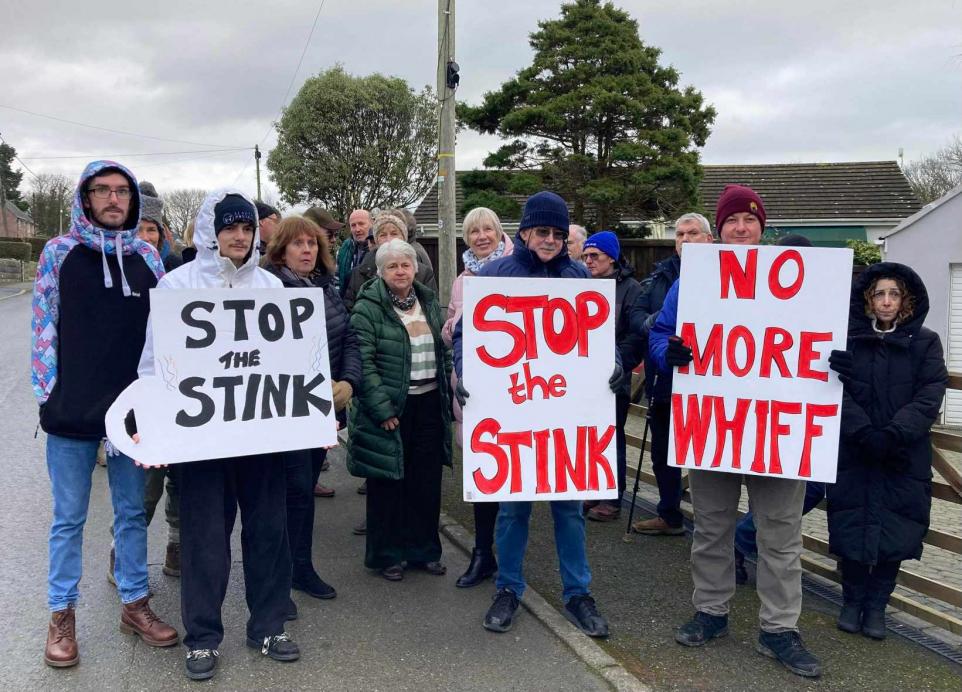
A PEMBROKESHIRE couple, Mr Richard and Revd Patricia Rogers of Crud yr Awel, are experiencing severe health issues attributed to emissions from the Withyhedge Landfill, resulting in drastic lifestyle changes and severe symptoms.
Revd Rogers, who has managed asthma since childhood, reported a significant deterioration in her condition following exposure to landfill gases. Despite having controlled her asthma with minimal medication for years, she now requires intensive treatment including increased doses of Symbicort and Salbutamol Sulfate inhalers, alongside courses of steroids and antibiotics. Her symptoms have escalated to include extreme breathlessness, a hacking cough, frequent nosebleeds, continual headaches, and vertigo, culminating in a severe impact on her ability to perform daily tasks and care for her disabled daughter.
The couple’s health is closely monitored through their doctor’s surgery, and they attend the asthma clinic regularly. However, feeling powerless to directly change the situation, they have taken a stand by cancelling their council tax payments, a decision they plan to maintain until the landfill issue is resolved.
Revd Rogers has also prepared a letter to the Coroner, outlining the severity of her health issues as potentially life-threatening due to the landfill’s impact. This dramatic step underlines the gravity of their situation and their desperation for a resolution.
The Rogers’ story is not just a personal tragedy but a stark example of the broader environmental and health challenges faced by the community surrounding the Withyhedge Landfill.
They are calling for punitive measures against those responsible, including compensation for the financial impacts of their ordeal.
Their story has surfaced on the same day we reported that Natural Resources Wales is taking further enforcement action against the firm running the site.
NRW has issued site operators Resources Management UK Ltd (RML) with a further Regulation 36 Enforcement Notice which requires the operator to deliver a series of actions by specified deadlines to address ongoing smells from the landfill.
You can read more about the Enforcement Notice on the NRW website.
Outgoing Council Leader, Cllr David Simpson, said in a statement this week: “The smell from Withyhedge is having a major impact on residents and visitors. This situation has gone on too long and it is unacceptable.
“We now need to see RML act on the demands of the Notice and within the deadlines.
“The Council fully backs NRW’s stance that nothing is off the table in terms of further enforcement, including suspending the site’s environmental permit if appropriate, and we remain committed to working with NRW to ensure a long term solution to these issues.”
Health
Paul Davies responds to St David’s Surgery news

LOCAL Senedd Member Paul Davies has reacted to the news that St David’s surgery in North Pembrokeshire has decided to resign its General Medical Services Contract. It’s understood that for registered patients, care will continue to be provided until the end of October 2024 and patients are being advised to remain registered with the Practice while longer-term plans are developed. Patients will be invited to share their views as to how these services can continue to be delivered after the end of October.
Mr Davies said, “This is a very worrying announcement and patients in the local area will be understandably anxious about what this means for the future.”
“It’s vital that GP services can continue to be delivered in the area in the future and so Hywel Dda University Health Board must be open with patients of the Practice about their plans and address the community’s concerns. Every effort must be made to ensure that patients are able to access services in the long term.”
“I will of course, be raising this with the Welsh Government and urging the Health Minister to do everything in her power to support the Health Board and help ensure patients can access these vital services.”
-

 News2 days ago
News2 days agoPolice and air ambulances at ‘serious incident’ at West Wales school
-

 News6 days ago
News6 days ago20mph U-turn: Some roads will return to 30mph following public outcry
-

 Community6 days ago
Community6 days agoMiracle pup finds her forever home after heart-wrenching journey
-

 Crime2 days ago
Crime2 days agoPembrokeshire pensioner accused of 17 sexual offences against children
-

 Crime1 day ago
Crime1 day agoAll three school stabbing victims discharged from hospital, police confirm
-

 Community3 days ago
Community3 days agoCounty Hall to offer space for community banking
-

 Crime4 days ago
Crime4 days agoBrian Davis: Wanted on suspicion of commercial burglary
-

 Education6 days ago
Education6 days agoTarget of 1m Welsh speakers by 2050 is “almost impossible”





































